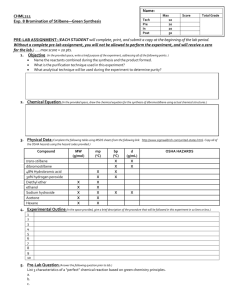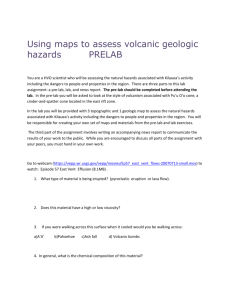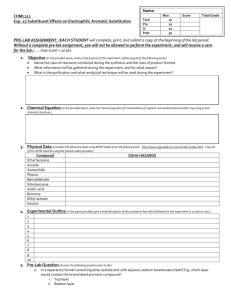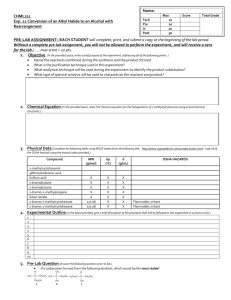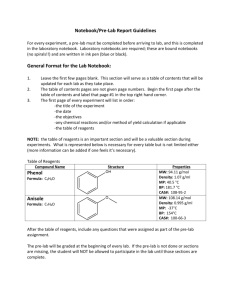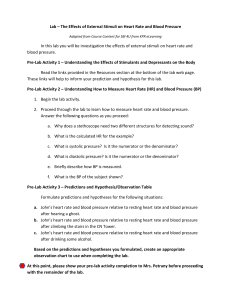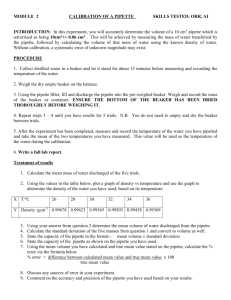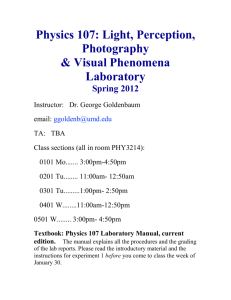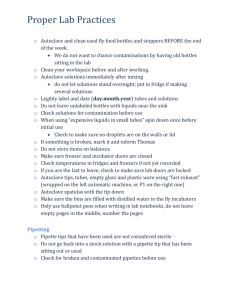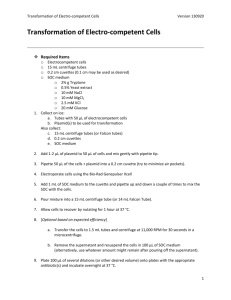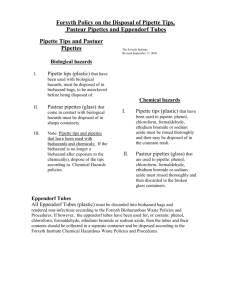Population Growth in Lemna minor
advertisement
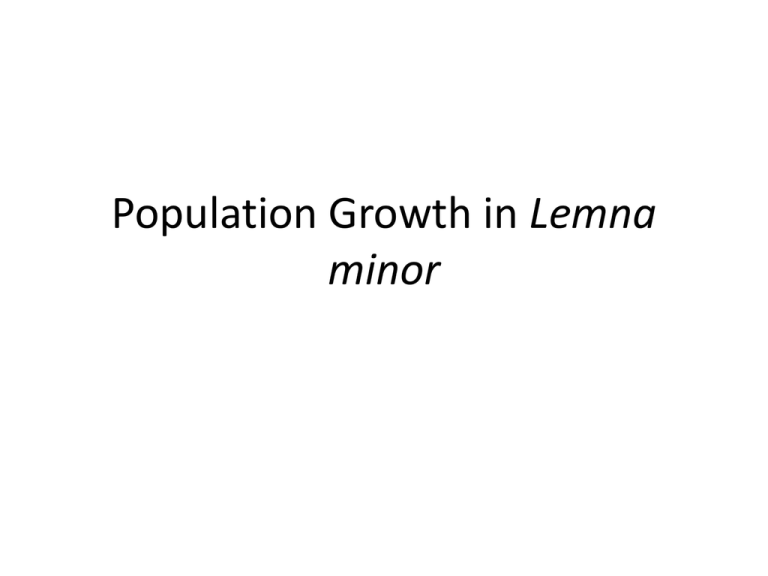
Population Growth in Lemna minor Pre-Lab: Important Notes & Homework • Safety: goggles, aprons, gloves • Data collection: EVERY DAY for 1st week • HW: – Become familiar with background info & procedures (S-1 – S-3 & S-5 – S-9). If anything is unclear, write it down for discussion on 10/28. – Copy Data tables, pre-lab questions (S-4) and post lab questions (S-10) into your notebook – Draw proper measuring technique for pipette, beaker, graduated cylinder Pre-Lab: Class work • Lecture / discussion • Each person will complete the following tasks in their own notebook. Feel free to discuss with group mates. – Answer the Pre-lab questions found on S-4 (you should have already copied the questions.) – Draw pictures of the three sets of test tubes you are establishing. Make sure to label contents of each set. – Draw figure 3 Lecture / Discussion • Several Objectives – How L. minor population growth rate reacts in differing environments (pollution issues) – Determining r and K (biotic potential and its relationship to population growth ) – Practice with designing / running an experiment (practice for Paper 3) Lecture / Discussion • Why need a control? • Why have replicates? • What is carrying capacity? – What part of the curve shows carrying capacity? – Is that in a logistic growth curve or exponential growth curve? • What is biotic potential? Determining Population Size • Where, – d means change – N means Number of individuals • Nt is N at any given time (t) • N0 is N at time = zero – r is a constant: population’s intrinsic rate of increase • rm = biotic potential – K is carrying capacity – e is Euler’s constant (number) = 2.72 • Exponential population growth equation: – – dN/dt=rN Nt = N0ert • Logistic population growth equation: – dN/dt = rN [(K-N)/K] Drawings • Test tubes – the water? – L. minor? – Any treatments:pH buffer, solutions, screens & rubberbands? – Plastic wrap with holes & rubberbands? • Beaker, graduated cylinder, pipette – The meniscus? – Pipette at 90° angle to tabletop? Data Tables • Three different tests x three replicates = 9 test tubes • Need a data table / each test tube
